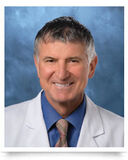12 Great Questions To Ask Your Heart Surgeon
By Adam Pick on December 18, 2016
A brilliant question I often receive from patients is, “What should I ask my surgeon when I meet with them?”
I’ve written about this question in the past. However, I thought it would be great to hear how a surgeon might respond to this question. So… At the recent Heart Valve Summit, I asked Dr. Kevin Accola this question. By the way, if you are unfamiliar with Dr. Accola, he is one of the most celebrated surgeons in our community. Doctor Accola has successfully treated many patients from this website including Denise Ring, Scott Neiman, and Tammy Pilcher.
Here are the highlights from my interview with Dr. Accola.
I really hope that hearing Dr. Accola’s ideas and tips will help you or your loved one prepare for heart valve surgery!!!
On behalf of our community, I want to thank Dr. Accola and the AdventHealth (formerly Florida Hospital) team for their incredible support of our patients and our community! Thank you Dr. Accola! Thanks Beverly Masker! Thanks Christy Mize! And, thanks Jenna Tomaselli!
- See Dr. Accola’s Interactive Surgeon Profile
- Discover the AdventHealth (formerly Florida Hospital) Heart Valve Microsite
Keep on tickin!
Adam
P.S. For the hearing impaired members of our community, I have provided a written transcript below.
Adam Pick: Hi, everybody. It’s Adam with HeartValveSurgery.com. Today, we’re at the heart valve summit in Chicago, Illinois. I am honored and thrilled to be here with Dr. Kevin Accola, who’s a cardiac surgeon at AdventHealth in Orlando, Florida. Many of you know this man. He’s helped many patients in our community, with incredibly successful outcomes, including patients like Denise Ring. Dr. Accola, thanks for being here with me.
Dr. Kevin Accola: Adam, it’s great to be here, as always. Thank you. It’s good to see you. I can’t tell you how much this means to our patients. What you’re doing, it’s just incredible. From a grassroots stand point, they can talk and interact online and chat groups and different things with patients that really can empathize with them. Thank you for all you’re doing because it’s just been incredible.
Adam Pick: Thank you. Now, let’s get to a question that we get from a lot of the patients. I get emails, I get texts, I get phone calls. Adam, I’m going in for surgery. I need to meet with a surgeon and I don’t know what questions I should ask them. Being that you’re a surgeon, what is it that patients should ask their surgeons when they go in for that consult?
Dr. Kevin Accola: I think that’s a great question because it’s not like taking a car and you get it fixed, or an oil change. You just take it in good faith that it’s going to get fixed and they’re going to do the right thing. The surgeons are going to do the right thing, but I think to put patients minds at ease, it’s very important for them to not only ask questions, but as, like, with through your book and through your website, they can actually interact with patients who’ve had the surgery; which may inspire them, if you will, to ask the appropriate questions to where they feel comfortable.
I don’t think there’s any one or two questions that have to be asked, so much as, I think the patient needs to want, understand what they’re going to have done, as well as why they’re having it done. What is the pathologic process? Is it a stenotic valve that doesn’t open or close normally? Is it an insufficient valve that leaks because it’s torn? Once they understand it, I think then they can comprehend some of their treatment options. If they don’t understand why they’re there, it’s going to be tough to: one, ask questions, but two, understand what their treatment options are.
I think one of the most important things is to ask, what are their options? Whether it’s surgery, whether it’s continued medical therapy, whether it’s they’re not quite ready to have their surgery done or not is very important, whether they’re emergent or can be more elective because if they have things with work or their children or with other personal circumstances that they need to resolve, then I think that’s important. Do I have to have it done right away?
The other option, of course, is do I need to have – if it’s particularly a mitral valve, can it be repaired or can it be replaced? Do you do valve repairing? What are the various approaches? A lot of the aortic valve surgery can now be done with smaller or limited access incisions. Is that appropriate for me as a patient? If not, then why is that, so that I can understand? Not that it’s right or wrong, but so they can understand.
The best thing that you can do is have it when the patient comes into the hospital that day, is to be comfortable and to be at ease and at peace with what they’re having to do. It is a huge thing, it’s very scary for patients. I think that a lot of these concerns can be alleviated with, again, asking the right questions, as you’ve said. There’s not a definitive question or something that everyone has to answer because it’s very individualized. I think that, again, just asking questions, writing them down, coming to the office or in the hospital with these questions I think is the key point.
Adam Pick: You mentioned a couple great things. You mentioned writing down your questions before you come in to see the surgeon because it can be uncomfortable when you’re talking to somebody in a white lab coat, and their talking about opening up your heart, perhaps. Have you ever had anybody tape record the sessions so that they don’t forget what was communicated during their consult?
Dr. Kevin Accola: Yeah, I have. A lot of times, that’s more important if they have family members that aren’t there or can’t be there. We either, we’ll do a telephone conference or FaceTime with them, or whatever they feel comfortable with is fine with me. If they want to tape record the question answer session, I think that’s fine as well. A lot of times they’ll get home and they will forget what they even asked, and what was the answer. It’s a lot going through their mind, and often times patients – because of the capabilities of the internet, which is good because patients do look into other options and have a better understanding, but it’s sometimes bad because the patients are super saturated with all this information. Often times they come in with this preconceived idea this is what they’re going to get, which it might not even correspond to, really, the treatment options. It is good to look on the internet, but I tell patients don’t overdo it because there is some marketing, there’s some other vested interests, there’s also – because often times they’ll get super saturated with information.
Adam Pick: Final point I’ll bring up, Dr. Accola, is this concept of being uncomfortable when you leave a doctor’s visit. Maybe you’re uncomfortable with what you hear or maybe you’re uncomfortable with the clinician. Do you every recommend or would you advise patients that if they’re not comfortable, maybe they get a second opinion?
Dr. Kevin Accola: Absolutely, Adam. Again, they’ve got to be comfortable with what they’re getting into. If there’s ever any doubt, I always encourage a second opinion. In addition to that, if they’re uncertain, they always spend time with my assistant as well as my administrative assistant, so that they have opportunity to come back and say, wait a minute, can I ask him a couple more questions? Also, I always tell them, look, if you want to come back and sit down again, you want to bring your daughter or son from out of town, or your spouse isn’t with you, come back and let’s do this again.
Again, it’s so important to me, particularly. Often times these are elective surgical procedures, which there are other options or they may want to find some other type of opinion, which I think is good because at the end of the day, I want someone when they do come to the hospital and they are ready for their heart surgery, again, to be at ease and at peace with what they’re going to do and feel comfortable. There’s no questions patients do better when they bought in, if you will, emotionally, and approach this enthusiastically; not only with the surgical procedure, but then in the convalescence period, they’re not going, my goodness, why did I do this? I think that it improves not only the way they enter surgery, but also the way they convalesce through the surgery.
Adam Pick: Dr. Accola, thank you for the great responses, the coaching you just provided all of our patient community. I just want to thank you for everything you’re doing at AdventHealth in Orlando. Thanks so much for being here.
Dr. Kevin Accola: It’s my privilege. We got a great team. Again, it’s just we’re proud to be a part of what you’ve done here and developed because it’s just incredible.
Adam Pick: Thank you so much! As we always say here, keep on tickin’!












